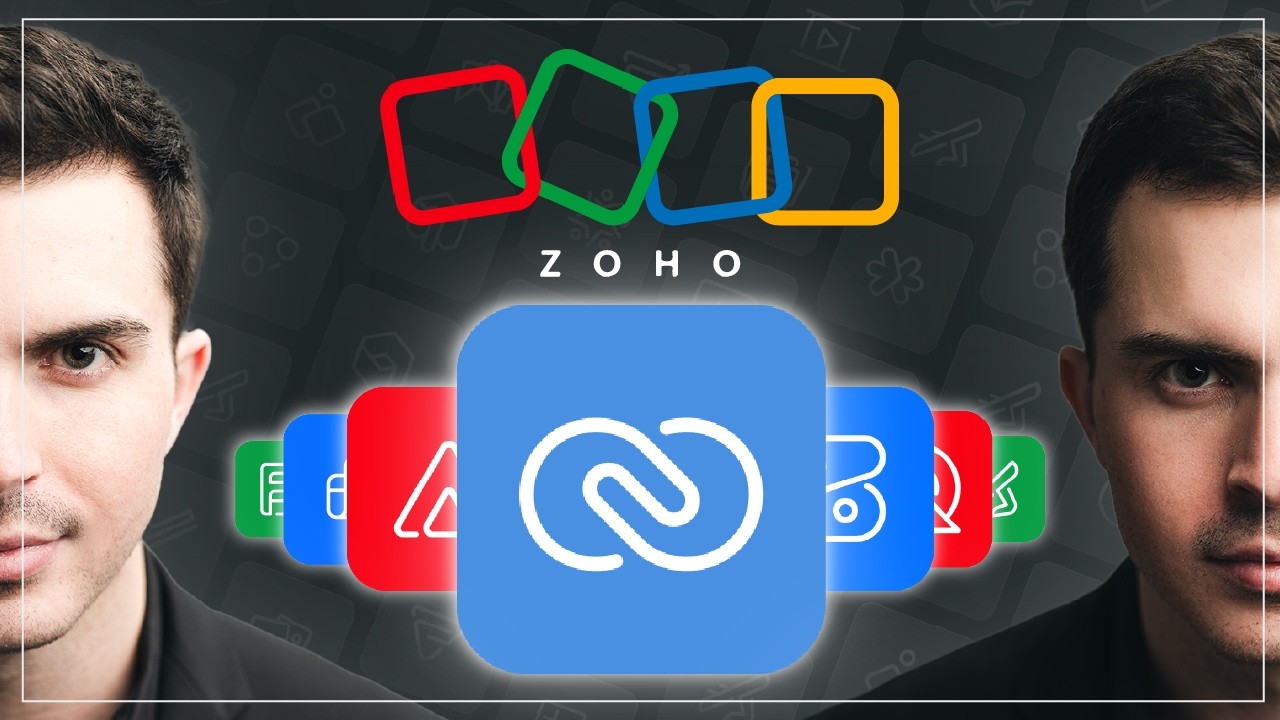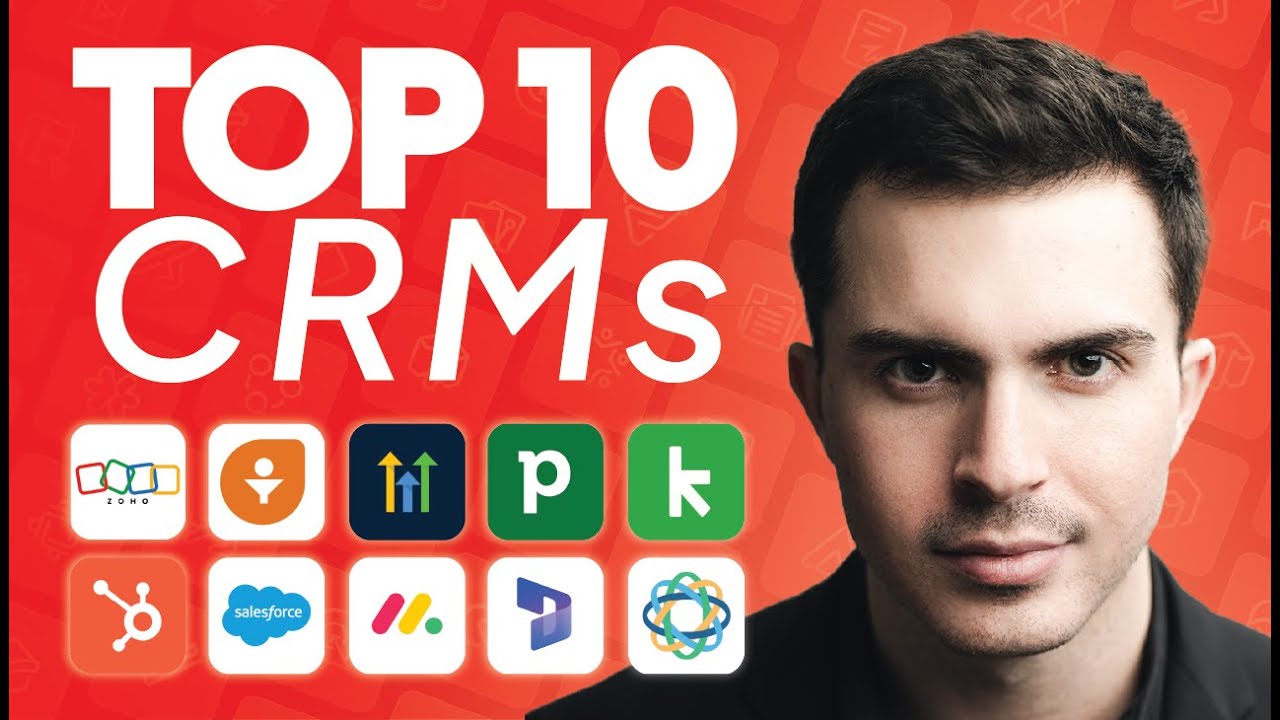
Drew Brockbank
August 20, 2025
5 mins
8 min





Choosing the right accounting software is one of the most important decisions for any growing business. I’ve worked with many companies navigating the "Zoho Books vs QuickBooks" decision, and I can tell you this: the best solution depends on your team’s needs, your processes, and how you want your business to scale.
Both Zoho Books and QuickBooks Online offer powerful features. But depending on your goals, whether it’s better inventory management, integrated payroll management, or full control over cash flow, one platform might serve you better than the other.
Let’s walk through it.
Every organization depends on accounting tools to track revenue, manage bank accounts, prepare profit and loss statements, and monitor overall financial health. A robust system isn’t just about compliance, it’s about giving leadership better insight into business operations and smarter decision-making.
If your accounting system slows you down, creates confusion, or can't integrate with your sales or HR platforms, you’ll eventually outgrow it.
Zoho Books is part of the broader Zoho Suite, a collection of tools designed for small and medium-sized businesses. It provides expense tracking, inventory management, accounts receivable, accounts payable, and solid cash flow reporting.
One big advantage? It integrates natively with Zoho CRM, Zoho Projects, Zoho Commerce, Zoho Inventory, and Zoho Payroll. If you already use Zoho apps, choosing Zoho Books just makes sense.
QuickBooks Online remains a go-to solution for many companies because of its longstanding reputation, easy onboarding, and a massive QuickBooks App Store for third-party integrations. It’s particularly strong for businesses that want a simple accounting solution with fast bank syncing and wide CPA adoption.
QuickBooks Payroll and QuickBooks Advanced are popular add-ons that allow growing teams to automate tax calculations and manage larger, more complex accounts.
Both Zoho Books and QuickBooks Online have flexible pricing tiers.
Zoho Books subscription plans include a free plan (for businesses under a revenue threshold) and affordable paid plans that scale based on users and automation needs. Zoho also offers both monthly and annual subscriptions that will save you money each month. Zoho paid plans start at $20 and go up to $70 a month.
The basic QuickBooks plans also start at $20 a month and go up to $60. Their advanced plans get more expensive from that point. That's why QuickBooks Online tends to cost more monthly, especially when you add extra services like payroll taxes management or advanced reporting capabilities. They also don't offer a free plan, but you can get a 30-day trial.
If you're focused on affordability without sacrificing functionality, Zoho often wins.
Both Zoho Books and QuickBooks Online check the basics: bank reconciliation, importing bank transactions, creating PDF invoices, recurring invoices, and tracking accounts payable. These essential features ensure that whichever platform you choose, you’ll have a strong accounting foundation. However, choosing between them is about looking at the extra features that make daily work easier, smarter, and faster.
But when you dig deeper, differences appear.
Both platforms allow businesses to track expenses, categorize them, and prepare reports. Zoho Expense offers tight integration if you need travel and expense claim management, syncing directly with Zoho Books for seamless reporting. QuickBooks, on the other hand, automatically categorizes expenses once bank accounts are connected, reducing manual entry. If expense management is a daily pain point for your team, QuickBooks' automation may save a few extra steps, but Zoho’s flexibility wins if you need to tie expense tracking into a bigger suite of apps.
Zoho Books includes a fully integrated client portal and optional vendor portal right out of the box. Clients can view quotes, invoices, make payments, and send messages, all inside one secure space without needing additional plug-ins. QuickBooks also supports client interaction through a customer portal, but it is slightly more limited. For example, there is less visibility for customers over invoice statuses or historical communications. If you’re aiming for a more collaborative relationship with customers or vendors, Zoho Books offers a range of native tools to enhance that experience.
Both platforms provide dashboards for enhanced cash flow visibility, offering insights into accounts receivable, accounts payable, and projected cash balances. However, the Zoho Books mobile app makes it incredibly easy to view your cash position, upcoming bills, and incoming payments even while you’re traveling. QuickBooks' dashboard is clean and provides a great overview. Still, Zoho Books takes it a step further by integrating cash flow forecasting tools directly into the app for mobile users, providing a real-time pulse on your financial health.
Zoho Payroll is tightly integrated if you’re operating in supported states, and it covers everything from wage calculation to tax filing. It's perfect if your team is already using Zoho platforms and you want native payroll processing. QuickBooks Payroll, however, is far more widespread across the U.S. and Canada, offering automatic tax filing, paycheck creation, and benefits management across multiple states. If broad geographic coverage is important, QuickBooks may edge ahead, but Zoho is quickly expanding its footprint in this area, too.
If you manage recurring expenses like software subscriptions, utilities, or ongoing retainers, both Zoho Books and QuickBooks make automation simple. But Zoho gives you more control with advanced settings like customizable frequencies, auto-send options, and the ability to link recurring expenses directly to projects. QuickBooks also automates recurring invoices, but may require additional manual adjustments if you need complex scheduling, making Zoho a little more "set it and forget it" when it comes to automations.
Sales tax compliance is built into both systems, and automatic sales tax calculation is available in most U.S. states. Zoho Books offers state-by-state automatic sales tax mapping, as well as the ability to define custom tax rules for niche business needs. QuickBooks has a slight edge if you need multi-state tax reporting or complex tax code support, especially for companies with large regional footprints, but Zoho is quickly catching up and supports full GST compliance for global users as well.
7. Inventory Management
Both platforms offer strong inventory tracking, including real-time quantity updates and cost of goods sold calculations. However, Zoho Inventory, when integrated with Zoho Books, offers advanced features such as warehouse management, dropshipping support, serial number tracking, and batch tracking. QuickBooks offers basic inventory management but reserves features like reorder alerts and vendor tracking for its higher-priced tiers. For businesses that rely heavily on physical goods, Zoho's ecosystem feels more robust, eliminating the need for additional paid upgrades.
QuickBooks emphasizes simplicity with a friendly QuickBooks dashboard designed for immediate understanding, especially for users without formal accounting training. It’s clear, visual, and intuitive. Zoho Books also offers a user-friendly interface, though it allows for deeper customization of dashboards, workflows, and role-specific layouts. While QuickBooks is easier for pure beginners, Zoho provides better flexibility to scale with your team's growing complexity.
Choosing between Zoho Books vs QuickBooks isn’t just about accounting — it’s about your broader technology stack.
If you’re already using Zoho CRM, Zoho Projects, or Zoho Workplace, Zoho Books fits like a glove, connecting your sales, project management, and finances into a single flow.
If you prefer a marketplace approach, QuickBooks App Store offers thousands of third-party apps, ranging from HR solutions to marketing automation platforms. It’s incredibly flexible but often requires more configuration to work seamlessly.
The real question is whether you want a pre-integrated experience or an "assemble your own toolkit" approach.
Both platforms provide standard financial reports, like profit and loss statements, balance sheets, and cash flow projections, essential for day-to-day operations.
If you need deeper, multi-dimensional analytics, Zoho shines by integrating with Zoho Analytics, which allows for cross-platform insights across inventory, CRM, project management, and finance. QuickBooks offers over 80 built-in reports with solid filtering options, but leans more towards pure accounting visibility rather than comprehensive operational performance tracking.
Both Zoho Books and QuickBooks offer robust mobile apps, but Zoho’s mobile experience stands out. You can manage invoices, sync bank feeds, track expenses, send payment reminders, and even update vendor details — all without opening your laptop.
QuickBooks Mobile covers the basics but may require more frequent switching to the desktop version for complex tasks, especially those related to inventory and project management.
Zoho Books offers a free accounting software plan for businesses with annual revenues of less than $50,000, making it ideal for startups and freelancers looking to control costs. QuickBooks does not have a true free plan, although discounts are often available for the first few months.
For cash-conscious businesses, Zoho’s free offering is a huge advantage, offering real tools without a heavy upfront investment.
QuickBooks Online’s standard plans typically charge per additional user, which can drive up your subscription price as your team grows. The Zoho Books Professional plan includes up to five users at no additional cost, and each additional user incurs a small monthly fee, making it a more scalable option for collaborative finance teams.
Both QuickBooks and Zoho Books offer robust automation features, including recurring billing, auto-reminders, and automatic transaction categorization.
Zoho offers more customization for automation without needing add-ons or marketplace apps. For example, they offer custom invoices, linking tasks to CRM records, and automating purchase orders. If your goal is to automate tasks at scale, Zoho gives you more native control.
Small businesses seeking affordable, integrated solutions often turn to Zoho Books. It's budget-friendly, offers great inventory management, and integrates seamlessly with other Zoho platforms, such as CRM and Projects.
QuickBooks Online remains a great choice for businesses seeking straightforward onboarding, extensive CPA support, and a widely recognized brand.
Both are excellent, but knowing whether you prioritize integration, pricing, or simplicity will guide the right choice.
Both offer a solid, user-friendly platform to manage your finances effectively.
If you're already using Zoho CRM or considering building a fully integrated business ecosystem, I highly recommend Zoho Books. Its pricing, flexibility, and automation make it an obvious choice for scaling smarter.
If you need a recognizable brand name, minimal setup, and a platform your accountant already loves, QuickBooks Online could be your best move.
Regardless of the circumstances, choosing the right platform now saves you headaches and a lot amount of money down the road.
Need help figuring out your best path? Let’s schedule a time to talk.





Book your free consultation to learn how Zoho should work for your business. We will show you the best practice ways to set it up and use it for your industry so you get the most out of Zoho.


Dive deeper into our expert articles.


